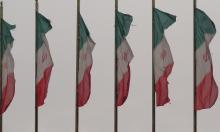Russia may dump weakening U.S. dollar in its energy deals
It seems that the rejection of the U.S. dollar has become a fashion trend in modern-day business relations. Several major oil and gas exporters have recently announced their plans to use a different currency in their deals with other countries. The heads of Iran, Venezuela and Ecuador expressed such an opinion at the OPEC summit in November. Iranian President Mahmoud Ahmadinejad particularly stated that Iran needs to replace the dollar because of its ongoing setback. His Venezuelan counterpart, Hugo Chavez, expanded on the idea and put forward a suggestion to change the dollar for the basket of currencies (apart from the dollar it includes the euro, the British pound, the Japanese yen, the Chinese yuan and the Venezuelan bolivar) to recalculated world prices on oil. Ahmadinejad continued with an idea to set up the OPEC Oil Exchange and the OPEC Bank.

Rafael Correa, the president of Ecuador, supported the proposal and noted that the dollar fall eats up a considerable part of oil exporters’ income: “In spite of the fact that oil prices have reached the level of about $100 per barrel, in fact they are lower than in the 1980s,” Correa said. However, these ideas received no support from OPEC. The dollar peg issue was put off till the next OPEC summit.
Officials of Russia’s natural gas giant, Gazprom, voiced an idea to use rubles in gas trade. “We consider the idea of selling our resources for rubles to be quite possible,” Gazprom’s Vice President Alexander Medvedev said at a recent conference in New York.
Meanwhile, Iran has already renounced the dollar. “Our country has completely ceased to export liquid hydrocarbons for the U.S. currency. Taking into consideration the dollar setback and the damage that it causes to oil exporters, we can not trust this currency any more,” said IRI Oil Minister Gholam Hossein Nozari on December 8.
Experts say that it is not the first time when the issue of the dollar peg comes into fashion on the world’s market of energy. These transition-to-another-currency talks are quite usual in oil trade when the dollar loses its value considerably. The situation was the same in the late 1970s, in the second half of the 1980s and from 1993 to 1995.
However, nothing has changed in the oil industry since then. This fact is quite understandable: the U.S. dollar will stay on its place as long as Texan Light Sweet along with English Brent set oil quality standards, and New York together with London host major oil auctions. Furthermore, the national currency of Saudi Arabia, the world’s biggest oil exporter, is pegged to the dollar. Alternative oil exchanges, where other currencies would be used, could change the situation. But the USA and their allies strictly control this issue. Saddam Hussein tried to organize such an oil exchange, but it was just on the eve of the U.S. intrusion.
As for Iran, its dollar-rejecting policy looks more like farce. The USA triggered the sanction system to isolate Teheran economically and financially. Many European partners (including major banks) cease their relations with Iran under the influence of Washington. Big dollar deals are under the strict control. Thus, Teheran’s transition to other currencies in the oil industry looks more like a defensive rather than offensive initiative.
As for Gazprom, its intention to sell gas for rubles is based on different motives. Unlike oil, natural gas is a resource of regional, but not global character. Its prices are established in the range of a certain distribution network. Payments are made in any currency available in the range of a regional market. Thus, the transition to rubles in Russian-European gas sales is possible in theory, though it would be much more logical to sell gas to Europe for euros.
On the other hand, Russia’s use of rubles in international deals would create a demand on the national currency abroad and that, in its turn, would have two favourable consequences. First, the inflation pressure would decrease. Secondly, ruble could become a freely convertible currency (officially it already is, but there is no demand on it abroad).
Anyway, gas rubles exist only in theory for the time being. All long-term Gazprom contracts should be revised to realize this idea, since they do not stipulate payment in rubles. It is a big issue whether Russia’s European partners would agree to such terms. In any case, it would have no effect on the dollar. Nowadays, Gazprom’s long-term export contracts are evaluated in dollars (55 percent) and euros (45 percent), so the leading world currencies would suffer from the ruble attack equally.
Utro
Translated by Ksenia Sedyakina
Pravda.ru
Subscribe to Pravda.Ru Telegram channel, Facebook, RSS!





